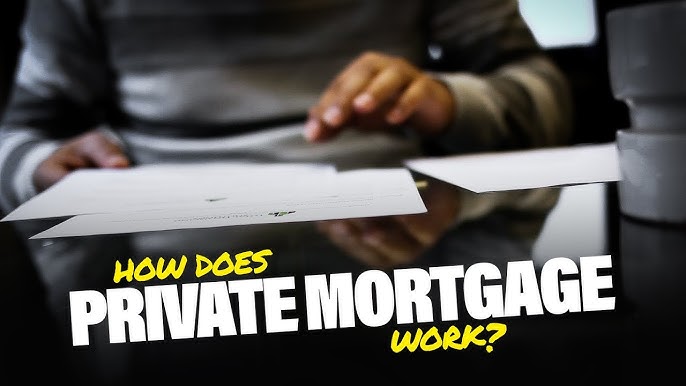The step-by-step process to financing your home with private mortgage lenders savannah ga
All Concerning Mortgage Lending: Key Insights for Homebuyers and Investors
Mortgage lending is a complicated landscape, using numerous loan types tailored to diverse customer requirements. Understanding the subtleties of conventional, FHA, VA, and USDA fundings can substantially influence buyers and investors alike. Additionally, credit rating play a pivotal role in securing beneficial rate of interest. As the home loan application process unfolds, several crucial variables come right into play, affecting both approval and terms. What are the vital steps and techniques to navigate this intricate process efficiently?
Comprehending Different Types of Mortgage Loans
Comprehending the different types of mortgage loans is crucial for possible property buyers, as each choice caters to different economic circumstances and requirements. Standard financings, normally provided by exclusive lending institutions, call for a higher credit scores rating and commonly involve a deposit of at the very least 20%. On the other hand, FHA lendings are government-backed and made for first-time customers, permitting reduced credit report and smaller sized deposits. VA finances, available to experts and energetic military participants, offer positive terms and no down repayment need. Additionally, USDA financings support country buyers with low to modest incomes, supplying absolutely no down payment choices. Fixed-rate mortgages preserve regular monthly settlements over the financing term, while variable-rate mortgages start with lower rates that can vary. By recognizing these differences, property buyers can make informed decisions customized to their economic conditions and long-term goals. Selecting the ideal home mortgage type is a substantial action in the home-buying process.
The Significance of Credit Rating in Home Loan Authorization
Credit history play a vital duty in the mortgage authorization procedure, functioning as a vital indication of a consumer's creditworthiness. A greater credit rating can lead to more positive passion prices, substantially influencing the general price of a mortgage. Understanding the principles of credit report and discovering methods to enhance them can considerably benefit prospective buyers.

Credit History Basics
A strong credit rating plays a crucial duty in the home mortgage authorization process, influencing lenders' assumptions of a debtor's dependability. Credit history scores, typically ranging from 300 to 850, reflect a person's credit reliability based on their economic background, including settlement history, credit history utilization, size of credit report, types of charge account, and current queries. Lenders assess these ratings to evaluate the threat connected with lending cash. Normally, a higher debt score shows lower threat, resulting in a smoother authorization process. Buyers and financiers ought to regularly inspect their credit scores records for errors and take steps to boost their scores, such as paying costs on schedule and decreasing arrearages. A strong credit history score is a crucial asset in protecting beneficial home loan terms.
Influence On Passion Prices
Rates of interest on home mortgages are considerably influenced by the debtor's credit rating, which acts as a vital indication of financial reliability. Lenders examine credit rating to assess the danger related to expanding a lending. Private Mortgage Lenders Savannah GA. Higher credit rating usually lead to reduced rate of interest, as they recommend that debtors are extra most likely to settle their financial debts. Conversely, lower credit history may lead to higher rates, reflecting the increased risk perceived by loan providers. This partnership emphasizes the value of preserving a strong debt account for possible debtors. Comprehending exactly how credit report influence rate of interest can empower buyers and financiers to make educated choices, potentially saving them considerable amounts over the life of their mortgage

Improving Your Credit Report
Homebuyers keen on protecting desirable home loan terms should identify the essential role of credit rating in the authorization process. A greater credit history often results in reduced rates of interest, which can substantially reduce the general price of a home financing. Lenders evaluate credit rating to assess a candidate's financial dependability, affecting their decision to accept or deny a home mortgage application. To improve their scores, prospective customers need to concentrate on prompt expense payments, minimizing arrearages, and preventing brand-new credit queries. On a regular basis evaluating credit rating records for mistakes can also aid maintain accuracy. By taking these actions, property buyers can boost their credit reliability, inevitably improving their possibilities of getting a home loan with positive problems.
Key Aspects Influencing Rates Of Interest
Exactly how do numerous financial factors shape the landscape of home mortgage passion rates? A number of vital components play an important function in establishing these rates. The Federal Reserve's monetary policy considerably affects rate of interest; when the Fed increases or reduces benchmark prices, mortgage rates normally do the same. On top of that, inflation trends affect the buying power of consumers, leading loan providers to readjust rates as necessary. Financial development signs, such as work rates and GDP development, also influence rates of interest; a robust economic climate commonly causes greater rates because of enhanced try here demand for fundings. The bond market serves as a vital benchmark; when bond yields increase, home mortgage prices tend to enhance. Individual consumer aspects, including credit rating rating and debt-to-income proportion, can influence the details rate provided. Understanding these dynamics aids property buyers and investors make informed choices in the home loan market
The Mortgage Application Process Described
What steps are associated with safeguarding a mortgage? The home mortgage application process starts with the customer celebration required documents, such as income declarations, income tax return, and credit report history. Next off, the borrower chooses a lender and sends an official application, offering all called for information. The loan provider after that conducts a debt check and examines the borrower's monetary stability.Following this, the lending institution will carry out an assessment of the residential or commercial property to establish its market value. Once the residential property is appraised, the loan provider reviews the application, including the debtor's economic history and the appraisal results, to make a decision whether to accept or deny the funding. If accepted, the borrower receives a loan estimate detailing the terms and prices associated with the mortgage.Finally, the borrower reviews and indications the closing papers, formally safeguarding the home mortgage. Recognizing this procedure is vital for possible home owners as they browse the intricacies of home mortgage borrowing.
Tips for First-Time Homebuyers
First-time homebuyers face an unique best site collection of challenges when entering the genuine estate market. Recognizing the different types of mortgages available and effectively budgeting for their acquisition are essential actions in the homebuying trip - Private Mortgage Lenders Savannah GA. By furnishing themselves with this understanding, they can make educated choices that align with their economic objectives
Recognizing Home Loan Types
Maneuvering the globe of home loan types can be intimidating for those getting in the real estate market for the very first time. Understanding the numerous choices is important for first-time buyers. Fixed-rate home loans provide foreseeable month-to-month repayments, making budgeting simpler. Alternatively, variable-rate mortgages (ARMs) usually start with reduced prices that can fluctuate over time, which might be enticing however carries risks. Government-backed car loans, see this page such as FHA and VA finances, offer additional assistance for eligible purchasers, frequently calling for lower deposits. In addition, novice homebuyers might check out standard financings that abide by details requirements. Each home mortgage type has unique advantages and drawbacks, so it is important for newbies to research thoroughly and analyze their lasting monetary goals prior to deciding.
Budgeting for Your Acquisition
When beginning on the trip of homeownership, efficient budgeting is essential for prospective buyers to assure financial stability throughout the procedure. New homebuyers must begin by evaluating their earnings and costs, ensuring they assign funds for a down settlement, closing expenses, and moving expenses. Establishing a monthly budget that consists of home mortgage payments, building taxes, insurance, and upkeep prices is vital. Customers must likewise consider prospective fluctuations in rates of interest and market problems. Producing a reserve can give a security web for unanticipated costs. Additionally, purchasers might benefit from seeking advice from monetary consultants or utilizing online budgeting devices to get a more clear understanding of their monetary situation. Careful preparation ultimately leads to informed decisions and an effective home purchase.
Financing Options for Real Estate Investors
What funding options are available to investor aiming to increase their profiles? Financiers can explore several methods. Typical home loans remain a popular choice, typically calling for a bigger deposit and great credit rating. Alternatively, capitalists may consider tough money finances, which are short-term car loans safeguarded by property, offering fast access to resources however at greater rate of interest rates.Another option is exclusive financing, where financiers can borrow from close friends or household, frequently with even more flexible terms. For those seeking to finance numerous properties, portfolio fundings may be appropriate, permitting several homes to be packed under one mortgage.Additionally, realty crowdfunding platforms have actually arised, enabling financiers to merge sources with others for home financial investments. Ultimately, leveraging equity in existing buildings through cash-out refinancing can supply funds for brand-new financial investments. Each choice has its benefits and dangers, needing cautious factor to consider based upon private investor goals.
Frequently Asked Questions
What Are the Typical Closing Costs Related To a Home loan?
Closing expenses normally include assessment charges, title insurance policy, lawyer charges, and source fees. These costs typically range from 2% to 5% of the funding quantity, affecting the overall financial commitment for the buyer.
How much time Does It Require To Shut on a Home loan?
The duration to shut on a home mortgage commonly varies from 30 to 45 days, depending upon different factors, including loan provider efficiency, documentation efficiency, and market conditions, which can significantly influence the total timeline.

Can I Re-finance My Home Mortgage Later On?
Yes, refinancing a mortgage later on is possible. Property owners frequently pursue re-financing to safeguard lower rates of interest, lower regular monthly repayments, or access home equity. Nonetheless, they must consider affiliated costs and their monetary situation prior to proceeding.

What Occurs if I Miss a Home Mortgage Payment?
If a home mortgage payment is missed out on, the borrower may encounter late charges, possible damage to their credit report, and feasible foreclosure process. Lenders generally supply grace durations, yet consistent missed out on settlements can result in significant consequences.
Are There Fines for Paying off My Home Loan Early?
Several lenders impose early repayment penalties for early home loan payback, potentially costing debtors added fees. Terms differ substantially amongst lenders, so it is important for debtors to examine their home mortgage arrangements prior to making very early repayments.